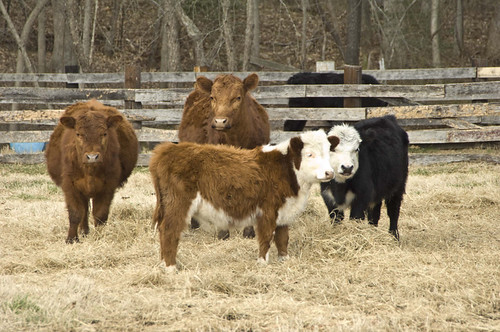
Stewardship is an ethic that embodies the responsible planning and management of resources. And as World Antibiotics Awareness Week comes to a close today, it’s important to note that the Veterinary Medicine profession too has a role to play in the use of antibiotics for animal health. This profession has ethical responsibilities as well as a vital role managing the use of antibiotics in food animal production that requires veterinary medical scientific training and knowledge.
Stewardship is a matter of principle; all veterinarians are expected to adhere to a progressive code of ethical conduct known as the Principles of Veterinary Medical Ethics (PVME). The PVME comprises the following Principles published and constantly under review by the American Veterinary Medical Association.
The Principles:
- A veterinarian shall be dedicated to providing competent veterinary medical care, with compassion and respect for animal welfare and human health.
- A veterinarian shall provide veterinary medical clinical care under the terms of a veterinarian-client-patient relationship.
- A veterinarian shall uphold the standards of professionalism, be honest in all professional interactions, and report veterinarians who are deficient in character or competence to the appropriate entities.
- A veterinarian shall respect the law and also recognize a responsibility to seek changes to laws and regulations which are contrary to the best interests of the patient and public health.
- A veterinarian shall respect the rights of clients, colleagues, and other health professionals, and shall safeguard medical information within the confines of the law.
- A veterinarian shall continue to study, apply, and advance scientific knowledge, maintain a commitment to veterinary medical education, make relevant information available to clients, colleagues, the public, and obtain consultation or referral when indicated.
- A veterinarian shall, in the provision of appropriate patient care, except in emergencies, be free to choose whom to serve, with whom to associate, and the environment in which to provide veterinary medical care.
- A veterinarian shall recognize a responsibility to participate in activities contributing to the improvement of the community and the betterment of public health.
Many questions still have yet to be answered about what responsible stewardship means. Stewardship often is referred to the same way as “judicious use” of antibiotics and sometimes the terms are used interchangeably. “Judicious use” challenges those of us to be truly scientific in our approach to patient care. We must be able to communicate our decision not just to the client, but to the general public. Risk analysis is a fundamental component of “Judicious Use”, risk management and risk communication is required also, before a veterinary feed directive is written to satisfy client concerns.
To promote the judicious use of antibiotics, USDA’s Animal and Plant Health Inspection Service created a training module in 2011, Use of Antibiotics in Animals, through a cooperative agreement with Iowa State University’s Center for Food Security and Public Health. This training module supports training requirements for accredited veterinarians. It is offered online or it is conducted at multiple veterinary meetings each year. USDA assembled a broad range of contributors/reviewers from multiple areas in the veterinary and public health worlds to collaborate on the online and PowerPoint training module. The objectives of the module include describing how antimicrobial drugs are used currently and providing resources on responsible antimicrobial drug use available to veterinarians.
Since 2012, 6,465 hours of training have been logged for accredited veterinarians and it has been completed 10,208 times online. Of USDA’s suite of training modules, Use of Antibiotics in Animals is the 8th most popular module. All of USDA’s training modules are open to the public. A user name or password is not required. According to Google Analytics, the traffic the online module sustains exceeds that which can be attributed to accredited veterinarians alone.



